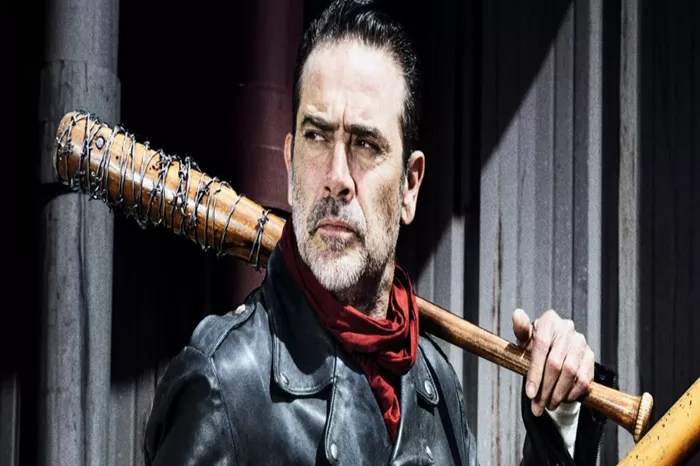Negan is one of the most iconic characters in The Walking Dead universe. His journey from a ruthless villain to a complex anti-hero has captivated audiences and sparked discussions among fans. This article delves into Negan’s character, his backstory, and his evolution throughout the series, providing a comprehensive understanding of who he is and what he represents in the post-apocalyptic world.
Character Overview
Negan first appears in the sixth season finale of The Walking Dead, portrayed by actor Jeffrey Dean Morgan. He quickly establishes himself as a formidable antagonist, known for his sadistic sense of humor and brutal methods of control. His weapon of choice, a baseball bat wrapped in barbed wire named Lucille, becomes a symbol of his violent reign over the Saviors, a group of survivors he leads. Negan’s introduction marks a significant turning point in the series, as he embodies the harsh realities of survival in a world overrun by zombies.
Creation and Development
The character of Negan was created by Robert Kirkman, the writer of the original comic book series. Kirkman envisioned Negan as a foil to Rick Grimes, the series’ protagonist. Initially intended as a one-off villain, Negan’s popularity led to his continued presence in both the comics and the television adaptation. Jeffrey Dean Morgan’s portrayal brought depth to the character, earning him critical acclaim and several awards for his performance.
Negan’s backstory reveals that he was once a high school gym teacher who struggled with personal loss before the apocalypse began. This background adds layers to his character, explaining some of his motivations and actions throughout the series. His relationship with his wife, Lucille, is particularly poignant; her battle with cancer deeply affects him and shapes his worldview.
Negan’s Role in The Walking Dead
Negan’s arrival in The Walking Dead is marked by one of the most shocking moments in television history: he brutally kills Glenn Rhee, one of the beloved characters, using Lucille. This act not only cements Negan’s status as a villain but also serves as a catalyst for Rick Grimes and his group to confront their own morality and survival strategies.
As the series progresses, Negan’s character evolves. He transitions from a straightforward antagonist to a more complex figure who sometimes displays vulnerability and remorse. This shift is particularly evident in later seasons when he becomes an anti-hero. The audience witnesses moments where Negan shows loyalty and even compassion towards certain characters.
See also: Who Is Immune in The Walking Dead?
Themes Explored Through Negan
Negan’s character embodies several key themes within The Walking Dead.
Morality in Survival: His actions raise questions about morality in extreme circumstances. Is it acceptable to commit heinous acts for survival? Negan often justifies his brutality as necessary for maintaining order among his followers.
Power Dynamics: Negan’s leadership style illustrates how power can corrupt individuals. His authoritarian approach creates fear but also loyalty among his followers. The dynamics between him and Rick Grimes highlight contrasting leadership styles—one based on fear and control versus one based on community and cooperation.
Redemption and Change: As Negan’s story unfolds, viewers see glimpses of potential redemption. His interactions with other characters, particularly those who have suffered due to his actions, force him to confront his past choices.
Negan’s Relationships
Negan’s relationships with other characters are pivotal to understanding him:
Rick Grimes: The rivalry between Rick and Negan is central to the narrative. Their confrontations are not just physical battles but ideological ones, representing different approaches to leadership and survival.
Maggie Rhee: After Glenn’s death, Maggie becomes one of Negan’s staunchest opponents. Their relationship evolves throughout the series, culminating in complex dynamics that explore themes of revenge and forgiveness.
Simon: As one of Negan’s top lieutenants, Simon represents both loyalty and ambition within Negan’s ranks. Their relationship deteriorates as Simon’s desire for power clashes with Negan’s authority.
Negan in Spin-offs
Following The Walking Dead, Negan continues to play a significant role in its spin-off series, The Walking Dead: Dead City. This new narrative explores further character development as he partners with Maggie to navigate new threats in an urban landscape filled with zombies. Their uneasy alliance showcases how far both characters have come since their initial conflict.
Critical Reception
Jeffrey Dean Morgan’s portrayal of Negan has received widespread acclaim from critics and fans alike. He has won several awards for his performance, including the Critics’ Choice Television Award for Best Guest Performer in a Drama Series and the MTV Movie Award for Best Villain. Morgan’s ability to balance charm with menace has made Negan one of television’s most memorable characters.
Conclusion
Negan is more than just a villain; he represents the complexities of human nature when faced with dire circumstances. His journey through The Walking Dead challenges viewers to consider questions about morality, power, and redemption. As audiences continue to explore his character through spin-offs like Dead City, it becomes clear that Negan will remain an integral part of The Walking Dead legacy for years to come.
In summary, Negan is a multifaceted character whose evolution reflects broader themes within The Walking Dead. From his brutal beginnings as a villain to his eventual role as an anti-hero, he embodies the struggles for survival in an unforgiving world while also prompting viewers to reflect on their own moral compass amidst chaos.
Related topic:
Is Shane Dead In The Walking Dead?
How Many Issues in The Walking Dead?

